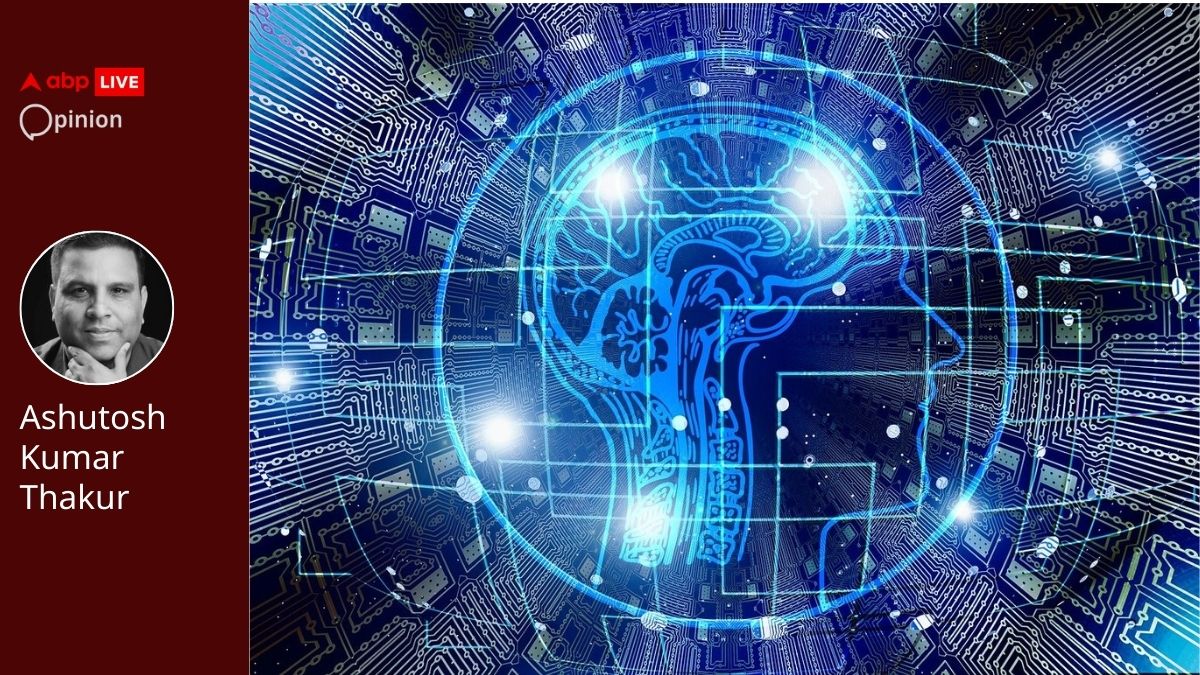ONLY AVAILABLE IN PAID PLANS.
Opinion: When The Mind Meets The Machine — Reimagining Work In The Age Of AI

In 1811, a group of English textile workers who called themselves Luddites destroyed the mechanised looms that threatened their livelihood. Though history would remember them as enemies of progress, their actions revealed a deeper anxiety — one not of mindless resistance but of moral protest. They feared, rightly so, that technology unmoored from social justice would entrench inequality rather than alleviate it.Two centuries later, we face a transformation of similar magnitude, though less visible and more insidious. If the 19th century industrial age announced itself through smokestacks and steel rails, today’s revolution creeps in through lines of code, machine learning models, and neural networks. The age of Artificial Intelligence (AI) is upon us, not with the clatter of looms, but with the hum of servers and the quiet efficiency of automation.Unlike steam or electricity, which amplified human effort, AI alters something more fundamental: it mimics and potentially replaces human cognition. Where earlier machines displaced muscle, these now threaten to displace the mind. This moment, therefore, is not merely about jobs lost or created. It is about the future of meaning, of agency, and of human dignity in the algorithmic age.ALSO READ | Markets Don’t Vote — Decisions Driven By Political Ideology Can Be Costly For InvestorsThe Past Is PrologueEvery technological revolution has invited both euphoria and dread. In 1831, the French historian Alexis de Tocqueville observed the rise of industrial towns in England with a mixture of awe and horror: he was awestruck by the power of machines, horrified by the alienation of workers. Karl Marx, writing a few decades later, saw in machines both the engine of capitalist exploitation and the seeds of future emancipation.India, too, has not been immune to the contradictory impulses of technological modernity. The British colonial state introduced railways, printing presses, and telegraphs not as tools of emancipation, but as instruments of control. Yet, these very tools were appropriated by Indian nationalists, social reformers, and intellectuals — from Tilak’s use of the press to Ambedkar’s invocation of modern education as weapons of liberation.This tension remains. Today, AI promises personalised healthcare, precision agriculture, and smart governance. But it also threatens to concentrate power, displace millions, and deepen surveillance. As with every transformative tool, the question is not what AI can do, but for whom, by whom, and to what end.The False Dichotomy Of Doom And DeliveranceThe current discourse around AI tends to oscillate between two extremes. One, a Silicon Valley-inflected optimism, sees AI as a new Prometheus unleashing human potential and solving age-old problems. The other, typified by thinkers like Yuval Harari or Shoshana Zuboff, foresees a world dominated by surveillance, joblessness, and ethical erosion.But history suggests a more complex truth. Technology is never autonomous. Its consequences are always mediated by institutions, ideologies, and the moral choices of societies. The invention of the printing press enabled both the Reformation and the Inquisition. The internet birthed democratic movements as well as disinformation regimes. AI, too, will reflect the values of its makers and the vigilance of its regulators.India’s Tryst With The MachineIndia stands at a curious juncture. We are both participants and bystanders in the AI revolution. On the one hand, Indian engineers power the backends of global tech firms. On the other, our public education system, particularly in rural India, remains staggeringly inadequate to prepare citizens for the coming age.The obsession with ‘reskilling’ is a symptom of this myopia. Reskilling presumes a workforce already schooled in fundamentals. But India needs a deeper educational renaissance — one that equips future citizens not merely with coding skills, but with the ability to think critically, engage ethically, and adapt creatively. What is needed is not just digital literacy, but civic literacy, historical awareness, and philosophical inquiry.Japan’s post-war transformation offers lessons. There, technological progress was accompanied by social cohesion, corporate responsibility, and a deep respect for craftsmanship and education. We must ask ourselves: are we preparing for AI with similar seriousness? Or are we merely reacting with policy papers and pilot projects?A New Imagination Of WorkOne of the enduring legacies of modernity has been the centrality of work to identity. The farmer, the weaver, the teacher, the bureaucrat — these roles grounded individuals in social and moral frameworks. But what happens when these roles are rendered obsolete? AI may not lead to widespread unemployment, but it will certainly challenge our inherited ideas of vocation, dignity, and contribution.This calls for a cultural recalibration. The future of work may lie not in linear careers but in projects, networks, and hybrid identities. Entrepreneurship, long romanticised in the language of unicorns and venture capital, must expand its meaning to include community leadership, social innovation, and ethical problem-solving.Mahatma Gandhi, whose vision of Swaraj was inseparable from the dignity of labour, understood this well. Technology, for him, was not to be rejected but repurposed. The spinning wheel was not just a symbol of economic self-reliance but of moral agency. Can we, in the AI age, craft a similarly grounded, plural, and humane vision?Democracy, Data, And The New ConstitutionAI’s implications go far beyond economics. They strike at the heart of democratic governance. Who owns our data? Who decides what algorithms can infer, recommend, or deny? What happens to accountability when decisions are made by black-box systems?Just as the 20th century saw the rise of labour laws, welfare states, and constitutional protections, the 21st must pioneer new social contracts: around digital dignity, algorithmic transparency, and equitable access. This is not a call for techno-pessimism but for techno-scepticism — a healthy distrust that insists machines be answerable to moral and legal norms.ALSO READ | The Power Of Patience — Lessons From Sunita Williams-Butch Wilmore, And Elon MuskWhat Remains Of UsUltimately, the most important question AI poses is not technical but existential. If machines can now write, paint, analyse, and even converse, what remains precisely human? The answer, perhaps, lies not in outthinking machines, but in outfeeling them.AI may generate music, but it cannot grieve. It may detect tumours, but it cannot comfort a dying patient. It may calculate probabilities, but it cannot bear responsibility. In an age when machines increasingly mimic cognition, our task is to preserve and deepen conscience.In the end, history will not judge us by the efficiency of our machines, but by the wisdom of our response. The Luddites of yesteryear may have misread the machine, but they understood something enduring: that technology untethered from ethics is no progress at all.The writer is a Bengaluru-based management professional, curator, and literary critic.[Disclaimer: The opinions, beliefs, and views expressed by the various authors and forum participants on this website are personal and do not reflect the opinions, beliefs, and views of ABP News Network Pvt Ltd.]















